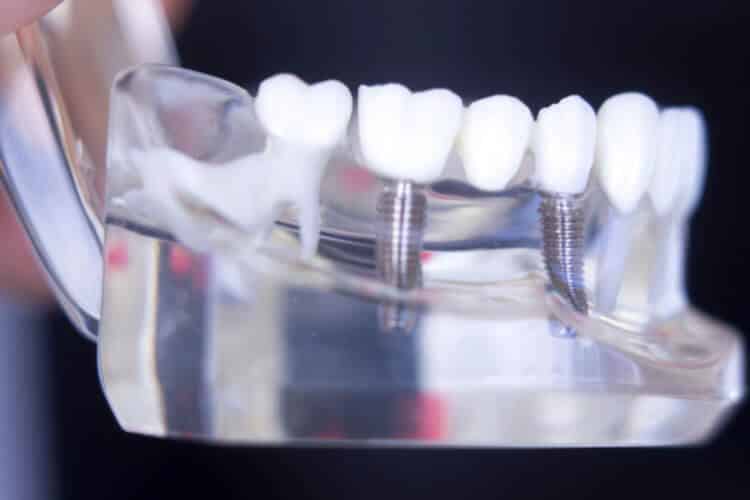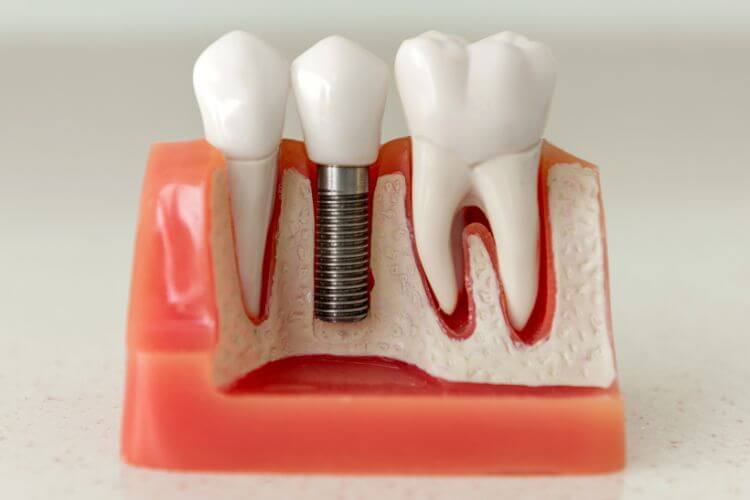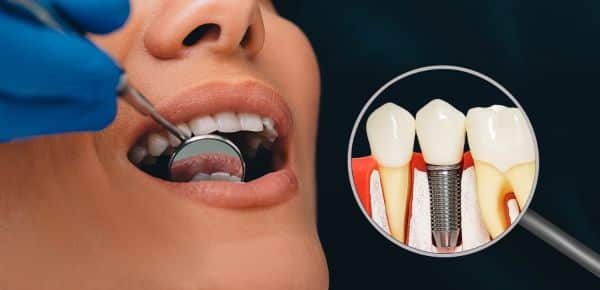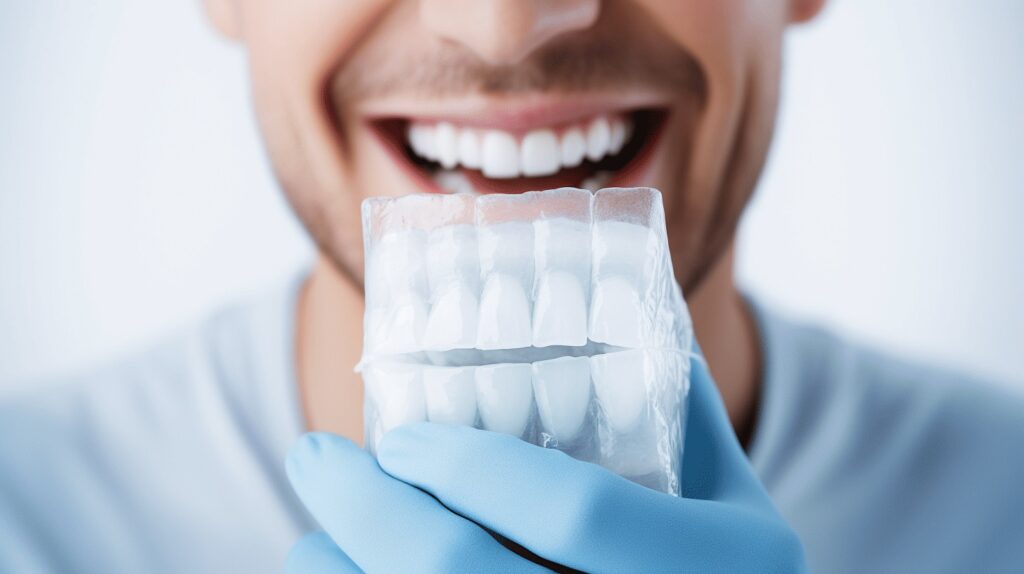Welcome to the world of dentistry, where innovation never sleeps!
Dental health is not just about sporting a bright, white smile. It’s about ensuring each tooth is well looked after, from root to crown.☝️
But what happens when you lose a tooth? 👀Is it a gap you have to live with for the rest of your life, or is there a practical solution? Well, thankfully, the field of dentistry has an impressive answer: dental implants!
Dental implants offer the hope of replacing lost teeth, not just for cosmetic reasons, but to promote better oral health. On this journey, we’ll delve into the nuts and bolts of dental implants, from understanding what they are to exploring how sophisticated advancements in technology are shaping their future.🚀
So, buckle up, and let’s uncover the secrets of dental implants together!
Table of Contents
Understanding Dental Implants
Understanding the intricate world of dental health can sometimes feel as daunting as a root canal. Yet, when it comes to restoring smiles, nothing quite matches the magic of dental implants. These are artificial tooth roots that provide a permanent base for fixed, replacement teeth.
Ready to dive in? So are we! Let’s start with the basics.
Success Rate
The success of dental implants is almost jaw-dropping. Dental implants have an astonishingly high success rate. It ranges from 95% to 98% on average. As you can see, the odds of achieving that megawatt smile with dental implants are significantly in your favor. Plus, according to additional information, it’s the lower jaw implants that have a success rate of 95%, while the upper jaw follows closely behind with a 90% success rate.
Survival Rate
Moving onto the survival rate of dental implants, it’s important to note that success and survival are two different things when it comes to dental terminology. After all, even the hardiest artificial teeth need their numbers!
The survival rates of dental implants stand the test of time. They vary from staggering 73.4% to an impressive 100% even after 14.5 years of being your loyal biting companions. Around 90% of dental implants survive, even after 10 years, and in the first 5 years of follow-up, the survival rate is approximately 86% to 98%.
Consider this your survival guide in the world of dental implants!
Types of Dental Implants
Last but definitely not least, let’s explore the types of dental implants. There are mainly two types: Endosteal implants which are inserted directly into the jaw bone, and Subperiosteal implants that sit on top of the jaw bone under the gum tissue.
Here’s a little bite-sized trivia – Endosteal implants boast a higher success rate compared to Subperiosteal implants. So, depending upon your requirement and dental health, your dentist might recommend the most suitable one for you.
To learn more about the Success Rate of Implants, be sure to check out our comprehensive guide. Trust us; it will make you smile from ear to ear!
There you have it – a comprehensive overview of dental implants, from their success and survival rates to the different types available. It’s crucial to understand the nitty-gritty before opting for any dental procedure, and we hope this helps you make an educated decision. Remember, a beautiful smile is always in style, and dental implants might just be your ticket to shine!
Role of Expertise in Dental Implants
Isn’t it fascinating how advancements in dental health technology can rebuild your smile with precision? One marvel that stands out in the oral health care world is dental implants. This solution is not only for those looking to restore their youthful glow but also for anyone who values the joy of a full grin.
But wait! There’s a little more to securing a successful dental implant than meets the eye. The not-so-secret ingredient to an effective dental implant procedure often lies in the hands of a highly skilled dental professional. Yes, the expertise of your dentist or oral surgeon goes a long way in determining the durability and functionality of your dental implant.
Dental implant procedures require precision and knowledge, given they involve inserting a metal post into the jawbone and putting a replacement tooth in the space left by a lost tooth. This artistry doesn’t simply press upon the need for accuracy, but it also calls for profound knowledge about the dental landscape — the type of the jawbone, gum health, and, most importantly, the smile design that would fit your lifestyle perfectly.
Why do we emphasize the importance of expertise in dental implant procedures?
We have a few compelling reasons to note:
- Safety first: Well-versed dentists can make the procedure significantly safer as they’re familiar with the complexities of the oral anatomy. Mishaps during surgery can hit delicate structures, causing nerve damage which results in persistent pain and/or numbness.
- Custom Planning: Every individual has unique dental needs and aesthetic goals. An expert dentist can tailor implant treatment plans to suit these personalized needs, leading to more pleasing outcomes.
- Long-lasting results: Let’s face it – you want your gleaming new smile to last as long as possible. Dental implant success and durability is considerably influenced by the expertise and experience of your dentist.
- Effective pain management: A trained dentist can mitigate the discomfort associated with dental implant placement since they understand the best practices in anesthesia and sedation techniques.
“But how can I choose the best dental professional for my dental implant?” you might ask. Pay attention to factors like their educational background, years of experience, and their track record in performing successful procedures. Take a step further by asking for their member associations, certifications, and continuing education in the field of implantology.
Brushing aside the stress of uncertainty, you could choose to have an open conversation about your dentist’s level of expertise during your initial consultation. This can help ensure that your journey towards a newer set of teeth goes as comfortably and smoothly as possible.
Remember, the longevity and success of your dental implants largely hinge on the expertise of your dental professional. So, take your time, choose wisely, and get ready to step into a world where your smile becomes your favorite feature.
Technological Innovations in Dental Implants
Dentistry, like many other fields, has undergone a significant transformation due to technological advancements. Dental implant technology has particularly seen exponential growth due to the integration of technologies like 3D printing, Artificial Intelligence (AI), and robotics. This has widened horizons for dental professionals, enabling them to offer improved patient outcomes with increased precision and durability. Let’s explore some of the fascinating innovations in dental implants. 🚀
3D Printing
The integration of 3D printing technology has revolutionized dental restorations, making them more precise and accurate. 🖨️🦷
- 3D printing enables the fabrication of customized dental implants, tailored to the specific dimensions of a patient’s oral cavity. This results in implants that feel and function just like natural teeth.
- The efficiency of production has also been significantly enhanced. This technology reduces the time between a patient’s initial consultation and the placement of their custom implant, leading to an improved patient experience.
Computer-guided Implant Placement
The dawn of computer-guided implant placement techniques has ushered in a new era of precision in implantology. 🖥️👨⚕️
- With real-time visualization and enhanced accuracy, dental professionals can now plan the placement of dental implants perfectly.
- This technology not only reduces the risk of potential complications but also provides a clear roadmap for the implant surgery.
- It should also be noted that computer-guided implants result in comforting postoperative outcomes for patients.
Robotic Technology and AI
Imagine a world where robots are performing dental implant surgeries. Sounds futuristic, right? Believe it or not, we are living in this age already! The integration of robotics and AI in dentistry is not just about automating procedures but also about enhancing precision. 🤖👩⚕️
- Robotic technology combined with AI can carry out extremely precise surgical procedures, minimizing human error.
- AI is used to process a wealth of data and provide analytical insights, aiding dentists in diagnosis and treatment planning.
Modern Dental Implant Materials
The evolution in dental implant materials has been remarkable. From the early days of stainless steel, we have moved towards highly durable materials like zirconia and titanium. These materials are renowned for their strength and longevity, making them ideal for dental implants. 🦾🦷
- Zirconia is a ceramic material known for its strength, biocompatibility, and tooth-like aesthetics, making it an ideal material for dental implants.
- Titanium, on the other hand, is preferred due to its compatibility with bone and other body tissues that allow the bone cells to grow around the implant, securing it even more effectively.
Dental innovations do not end here, keep yourself updated about the Innovations in Dental Implants for better oral health decisions. Always remember, your smile matters! 🥰
Future of Dental Implants
The landscape of oral health care is changing dramatically at an accelerated pace, kickstarting a revolution in the dental industry. Among all the incredible advancements, a prime example of innovation is dental implants. Proving to be far superior to conventional treatment methods, dental implants have set the stepping stone for replacing missing teeth.
Our exploration of the exciting Future of Dental Implants begins with three pivotal elements- the growing market, the improvement in implant planning automation, and alternative therapy practices.
Growing Market
Let’s unwrap the first layer, the burgeoning market of dental implantology. Did you know?
- The global dental implants market is growing at a compound annual growth rate (CAGR) of 6.4%.
- It’s anticipated that the dental implants market will blossom to a staggering worth of $4 billion by 2023.
And the stats don’t lie! With a current success rate that towers at an impressive 95%, dental implants are becoming the standard procedure for replacing missing teeth.
Improvement in Implant Planning Automation
Technology is not only augmenting but reshaping the dental industry. At the forefront are improvements in implant planning automation.
One of the key points we’ll delve into is the progressive development in implant surface technology design. Dental implant success hinges upon its design. Enhancements in implant surface design are steadily pushing the boundaries, potentially skyrocketing the success rate of dental implants even further!
Alternative Therapy Practices
Alternative therapy practices aren’t far behind. With the fusion of modern technology and traditional practices, these burgeoning therapeutic methods are making their way into mainstream dental treatments.
What might have seemed unconventional a few years ago seems like the norm today, and who knows? Maybe there is an even brighter horizon of dental implant practices waiting for us.
Our journey to that future begins right here, right now! So, hop on and let’s explore the captivating world of dental implants together.
Conclusion
Our exploration into the complex world of dental implants reveals the value and potential of these tooth loss solutions. They boast high success rates, survival rates, and come in various types to suit different needs. Importantly, the level of expertise from dental professionals plays a crucial role in the implant procedure’s success.
Lucky for us at Wilshire Smile Studio, our seasoned professionals are equipped with the knowledge necessary for successful implantation.
Innovations in technology, from 3D printing and computer-guided placements to the use of artificial intelligence, continue to revolutionize this field. By relying on modern and bio-compatible materials, we are providing more durable and efficient solutions to our patients.
Looking ahead, we see a promising future for dental implants, driven by a steadily growing market, the advancement of implant planning automation, and the evolution of alternative therapy practices. We believe that the best is yet to come, and we are excited to be a part of this dynamic landscape.
Unleash your perfect smile with us at Wilshire Smile Studio. Our comprehensive dental services, modern technologies, and professional expertise are here to ensure that tooth loss doesn’t stand in the way of your confidence.
We are dedicated to making dental care accessible, comfortable, and personalized. Let’s walk together on the journey towards a healthy, beautiful smile! Remember—the secret to overcoming tooth loss may just be one dental implant away.
Book your free consultation with us online or call (323) DENTIST (323-336-8478) today.
Frequently Asked Questions
1. What are dental implants?
Dental implants are artificial tooth roots made of titanium that are surgically implanted into the jawbone. They serve as a sturdy base for replacement teeth or dental crowns.
2. Are dental implants a permanent solution?
Yes, dental implants are considered a long-term and often permanent solution for tooth loss. With proper care and maintenance, dental implants can last a lifetime.
3. What are the benefits of dental implants?
Dental implants offer numerous benefits, including improved appearance, enhanced speech and eating efficiency, increased comfort, durability, and preservation of the jawbone structure.
4. Who is a good candidate for dental implant surgery?
Ideal candidates for dental implant surgery are individuals who have good oral health, sufficient jawbone density, and are non-smokers. A consultation with a dental professional can determine if you are a suitable candidate.
5. Is the dental implant procedure painful?
Local anesthesia is used during the dental implant procedure to ensure that patients experience minimal discomfort or pain. After the surgery, mild soreness or swelling may occur, but it can be managed with over-the-counter pain medication.









